Yellow weather warnings remain in place across the UK following the first snowfall of the season, which caused more than 200 schools to close.
Forecasters are advising that vehicles could be stranded, power cuts may occur and rural areas could be cut off.
Temperatures could drop to -12C in rural parts of Scotland and -7C in rural parts of Wales on Wednesday night.
Yellow warnings for eastern and northern England and Northern Ireland have come into effect, and a new yellow warning has been issued in parts of western Scotland.
Southern and central England are under a yellow alert, which will remain until 10:00 on Wednesday.
In Wales, the yellow alert has been updated as snow and ice is expected across the country, with the warning also lasting until 10:00 on Wednesday.
A yellow warning means it is likely that the weather will cause some low-level disruption to travel, and the danger of slips and falls on icy ground.
In a post on X, the Met Office said roads were expected to be icy, and advised people to take extra care if they were out and about.
Counties along the North Sea coast will also see snow showers into Wednesday morning with the possibility of 10cm (4in) accumulations over higher ground.
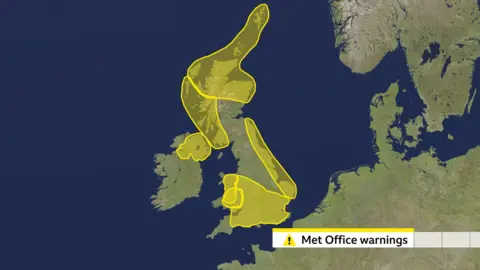
Temperatures in the coming days will be much lower than the mid-November average by day – and are expected to reach below freezing by night.
They are predicted to drop to -2C in London on Friday, -4C in Birmingham and -7C further north.
The average November temperature for London is 11C during the day and 5C at night.
On Monday, Scotland had its coldest early winter night since 1998, with temperatures in Braemar in Aberdeenshire reaching a low of -11.2C.
Elsewhere in Aberdeenshire, a bus ended up on its side in icy road conditions in the New Leeds area. There were no injuries.
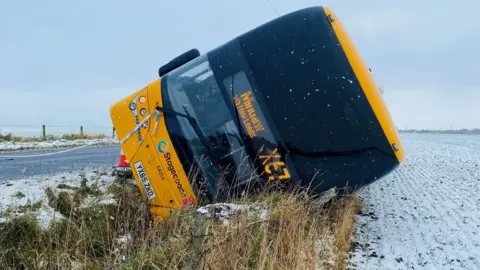
The RAC said Tuesday’s snow was the “first taste of winter” for many drivers, with “some of the worst road conditions we’ve seen all year”.
Spokesperson Alice Simpson said: “Everyone should travel prepared in case they find themselves broken down at the side of the road: a blanket, warm waterproof coat and gloves, sturdy footwear and a charging cable and mobile power bank are all essentials.”
Snow caused travel problems in Wales with the A44 in Powys becoming impassable and crashes on snowy roads closing the A55 eastbound at Caerwys in Flintshire.
Transport for Wales said 13% of its services had been disrupted by severe weather.
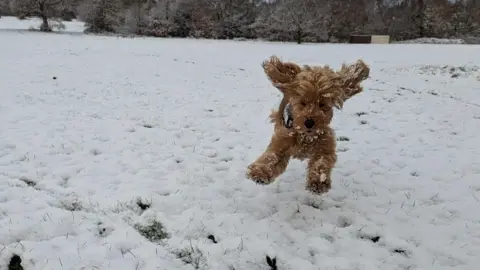 Laura Sabourn
Laura Sabourn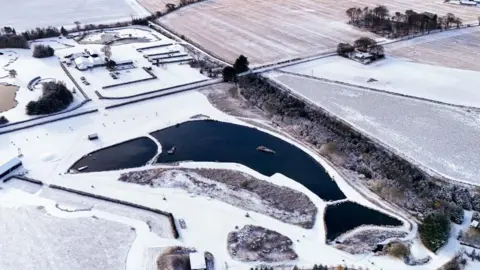 PA Media
PA Media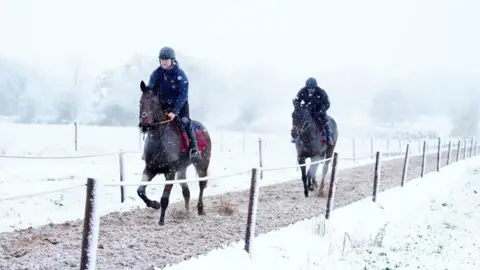 PA Media
PA MediaThe UK health security agency (UKHSA) has issued an amber cold weather health alert for the east of England, East Midlands, West Midlands, North East, North West and Yorkshire and the Humber.
This means that there is an increased risk to vulnerable people, with a warning that the weather could have an impact on the whole health service.
“It is vital to check in on vulnerable friends, family and neighbours to ensure they are well prepared for the onset of cold weather.
“Particularly if they are elderly or otherwise at increased risk,” Dr Agostinho Sousa, head of extreme events and health protection at UKHSA, said.
As the weather turns colder, some people may be eligible for cold weather payments – a government benefit top-up to help with fuel bills during times of exceptionally cold weather.
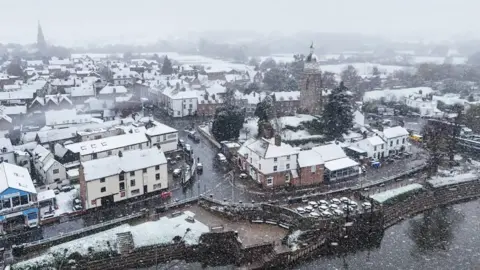 PA Media
PA Media












Leave a comment